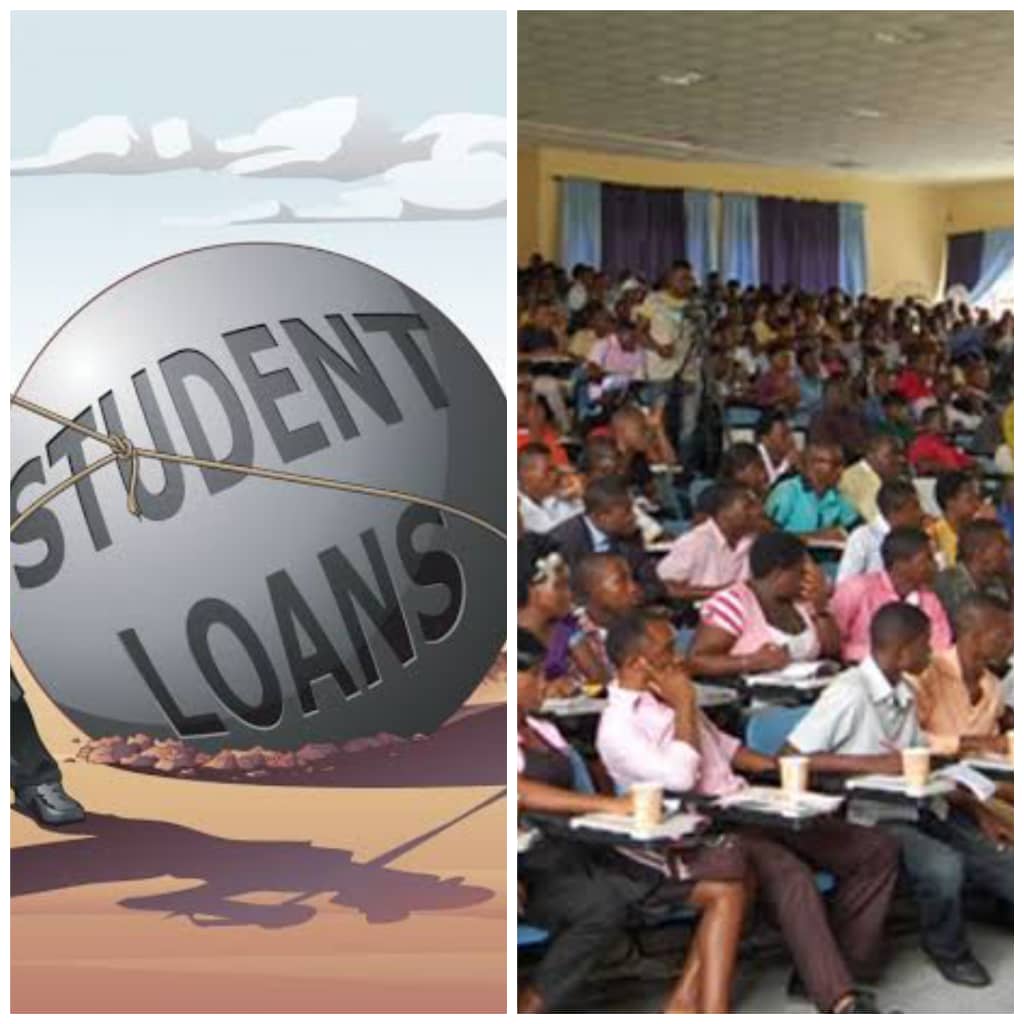In a development that is no longer news, President Bola Ahmed Tinubu approved and signed the student loan Bill into law, sparking various reactions from stakeholders and Nigerians alike. The bill, titled ‘Students Loans (Access to Higher Education) Act, 2023,’ was initiated by former Speaker of the House of Representatives, Femi Gbajabiamila, who currently serves as the Chief of Staff to the President.
The newly established loan fund will be financed through multiple sources, including one percent of all profits derived by the federal government from oil and other minerals, as well as taxes, levies, and duties collected by the Federal Inland Revenue Service (FIRS) and the Nigerian Immigration Service. Additionally, funding will be supplemented by education bonds, education endowment funds schemes, donations, gifts, grants, and revenue from any other viable sources.
However, the bill’s reception was met with mixed reactions. Major unions representing tertiary institutions, such as the Academic Staff Union of Universities and the Academic Staff Union of Polytechnics, wasted no time in reminding Nigerians that they had never supported the idea of student loans.
While some individuals expressed excitement about the prospect of accessing funding for their education, others raised concerns regarding the repayment terms and the potential risk of defaulting on the loans. These differing opinions highlight the diverse perspectives among Nigerians regarding the new student loan law.
The million-dollar question is whether the Act is a blessing or a burden.
Mr. Isiaka Opeyemi, a civil servant, expressed his appreciation for the government’s decision, considering it a welcome development. However, he suggested that in addition to the student loans, the federal government should also explore ways to reduce the tuition fees of federal and state institutions.
Also, Miss Odenusi Hannah, an assistant lecturer at Kwara State Polytechnic, welcomed the introduction of the student loan law. However, she emphasized the need for proper monitoring by the government to ensure that the loan process doesn’t become another avenue for corruption.
While the student loan law may initially appear as a dream come true for many underprivileged Nigerians seeking higher education, a closer examination of the Act may present a different perspective. It is important to critically analyze the provisions and implications of the law to fully understand its potential impact.
The specific conditions outlined in the Act for accessing the student loan program, as mentioned, present certain limitations and potential challenges. One of these conditions restricts eligibility to children or wards of parents with an annual income not exceeding N500,000 (less than $1,000). Additionally, applicants must provide two guarantors, including civil servants not less than level 12, a lawyer with at least 10 years of experience, or a judicial officer or Justice of Peace.
A beautician known as Kazeem Rofiyat, expressed concerns that these beneficiary requirements would exclude many indigent individuals from accessing the loan. This could further deepen the divide between the rich and the poor, as the law discriminates against those who come from less privileged backgrounds.
Moreover, the requirements set forth in the Act may make it difficult for Nigerians to benefit from the student loan program. Additionally, the stipulation that loan repayment must begin two years after graduation poses challenges, particularly for individuals who may not secure immediate employment or who require additional time to gain work experience. This requirement may not align with the realities of the Nigerian job market, where obtaining a meaningful job often demands a minimum of three years of experience.
In response to the signing of the student loan bill, both the Academic Staff Union of Universities (ASUU) and the Academic Staff Union of Polytechnics (ASUP) criticized the establishment of the students’ loan fund.
According to the President of ASUU, Prof. Emmanuel Osodeke, the bill discriminates between the rich and poor. Osodeke further argued that it would end up encumbering the children of the poor with debt after graduation.
Similarly, the President of ASUP, Anderson Ezeibe described the law as impracticable, whichever way one may look at it. Ezeibe wondered what will happen to someone who is not working after the National Youth Service Corps (NYSC), but is expected to repay the loan two years after serving his country.
Another condition also limits the loan to payment of tuition fees which, as of now, is non-existent across many tertiary institutions owned by the federal government.
Part of the fear of the people is the belief that the student loan will bring about an increment in school fees across Nigerian universities. Speaking on the issue, the National Treasurer of the Academic Staff Union of Universities (ASUU), Olusiji Sowande, a professor, who clarified that no federal government-owned university currently charges tuition as part of their fees, hinted at the possibility of introducing tuition by the new administration.
On his part, an executive committee member of the Campaign for Workers’ and Youths’ Alternative (CWA), Akinkunmi Olawoyin, stated that the law has only “provided the government with a weapon to abdicate its responsibility of funding education and transfer the burden to the students and their parents.”
He listed the budgetary allocations to the nation’s parliament within the last few years, noting that the budget rose from an average of N130 billion in the past years to more than N200 billion in the current parliamentary calendar year.
“If they are truly thinking of the masses, the huge resources allocated to only 469 members of the National Assembly would have been redirected to funding education and public health services in the country. The law is anti-poor, and it is aimed at scamming the people,” Mr Olawoyin said.
On the contrary, a former Vice-Chancellor, Adekunle Ajasin Akungba University, Ondo State, Prof Femi Mimiko, envisaged that the dying universities would be greatly enhanced if the intention of the new Act was properly delivered.
He added that the compelling implication of the scheme was that it would now make it permissible for all the tertiary educational institutions in the country to charge for tuition, adding that the lack of tuition fees in tertiary institutions was the very recipe for institutional decay, which had been the lot of higher educational institutions these past decades.
In essence, one can conclude that the loan is a way of the government shutting the mouth of indigent students after when it eventually increased the cost of university education, as parents can no longer complain of a lack of funds when the government has provided a no-interest loan to indigent students.
For now, there has not been any satisfactory response by the federal government to the concerns of Nigerians and stakeholders about the loan. In a country with harsh economic realities and a high unemployment rate, repaying such a loan seems like an impossibility.
Reacting to the signing of the bill into law, a Twitter user, @DevTobs, wrote, “student loan for more folks when the ones outta school don’t even have jobs yet. Imagine being a graduate, jobless, with a debt tag hanging on your neck, that’s crazy. Nigeria tops amongst one of the highest unemployment index rates with a 33.3%. Yet you’re signing some bill to have more folks study on loans. How will they pay back? With their blood? They’d graduate and join the tumult of unemployed folks and face the Shege of debt again. This bill has its pros, but the cons outweigh it ngl & hoping it ain’t another Agbado folks’ gimmicks to launder money. The common man is so in soup.”
Chekwube Nzomiwu, a public affairs commentator, argues that the loan scheme is not sustainable. He pointed out that education in Nigeria suffers, not because the funding for it is not available, but owing to the limited outlook of the policymakers who see investment in education only from the narrow prism of social investment.
He cautioned that introducing education loan is a tangential measure. It does not make any sense for the Nigerian government to give students loans to finance their studies in tertiary institutions that are bogged down by incessant industrial unrest, dilapidated infrastructure, lack of basic amenities, and a poor learning environment.
He said, “the revitalization of the universities formed part of the series of unimplemented agreements that the federal government signed with ASUU. I expect the Tinubu administration to intensify efforts in this direction, as it will ensure a comprehensive improvement in the quality of learning in Nigerian universities. The same should apply to the polytechnics and colleges of education.”
To buttress that, the National President of the Association of Tutorial Owners, Mr. Oladotun Sodunke, said, “The newly-introduced student loan would not bring any progress to students and the education sector. It will not take us anywhere; people are already saying come and take a loan to study any course in Nigeria. To study in which school? To study in a seriously under-equipped institution? Education in Nigeria is messed up. Education should be genuinely and fully funded. We are doing less than 5% of the budget. Government should do like 10%.”
Still worried, Chekwube Nzomiwu fears that what happened in the past might happen again, “Unless we learn from history, we are bound to repeat it. The recent effort on students’ loan is not the first in the history of Nigeria. The first was the Nigerian Students Loan Board established in 1972. For the 18 years the board lasted, the federal government gave loans totaling about N46 million to students to finance undergraduate and postgraduate studies. The board encountered severe problems, including abysmally poor loan repayment, forcing the federal government to scrap it in 1991,” he said.
If the defunct board came into being in 1972 during the era of the oil boom under Gen. Yakubu Gowon administration when Nigeria had so much money but didn’t know what to do with it and was scrapped in 1991 when the exchange rate of naira to the dollar was N10 to one dollar, when unemployment in Nigeria was estimated at 3.2 percent and the population was not high, how would it work at this time of hard economic realities?
Today, the exchange rate is in the neighborhood of N700 to one dollar, unemployment is about 33 percent, according to the last unemployment statistics released by the National Bureau of Statistics (NBS) in 2021. KPMG, a multinational professional services network, and one of the big four accounting organizations registered in the United Kingdom, stated recently that unemployment in Nigeria has increased to 37.7 percent and predicted that it will hit 40 percent this year.
Where exactly did the government expect the beneficiaries of the student loan to gain employment and pay back? Even in Europe and America, where the unemployment rate is minimal, repaying student loans has been a major challenge till date.
Dr. Festus Adedoyin, a Senior Lecturer at Bournemouth University in the United Kingdom, shed light on the situation there. He explained that in the UK, there are tuition fee loans that cover the cost of tuition fees charged by universities or colleges, as well as maintenance loans that provide financial support for living expenses. However, he revealed that repayment of student loans can sometimes be challenging, as the repayment period spans 30 years.
“While the loan has several benefits, such as providing access to higher education for many individuals who would otherwise be unable to afford it, the burden of debt can sometimes cause financial stress and influence life decisions, such as career choices or delaying other major financial commitments,” Dr. Adedoyin emphasized.
A tweet from @firstladyship highlighted the struggles faced by borrowers in the United States: “America has a massive jobs market. Yet millions can hardly repay their student loan. Nigeria has 133 million multidimensionally poor, and unemployment will hit 46%. Instead of loans, give Education Grants. I hope you know that student loans are a knee-jerk populist agenda to excite the gullible?”
The student loan scheme in Nigeria includes penalties for defaulters, with recommendations of imprisonment or fines for those who fail to repay or aid defaulters. Many people perceive a mischievous angle to the loan scheme and consider it a subtle way of curbing emigration (“japa”) and ensuring repayment within years.
Stakeholders have pointed out that the government should prioritize improving the quality of education rather than increasing fees or offering loans for attending substandard schools. The crucial question remains: Where will the beneficiaries of the loan find employment to pay it back?
A tweet from @FS_Yusuf_ aptly summarizes the situation: “Nigerian youths don’t have a problem of going to university. They have a problem of life after university – getting jobs. That Tinubu Student Loan policy is a complete disconnect from the reality in the country.”









Leave a Reply